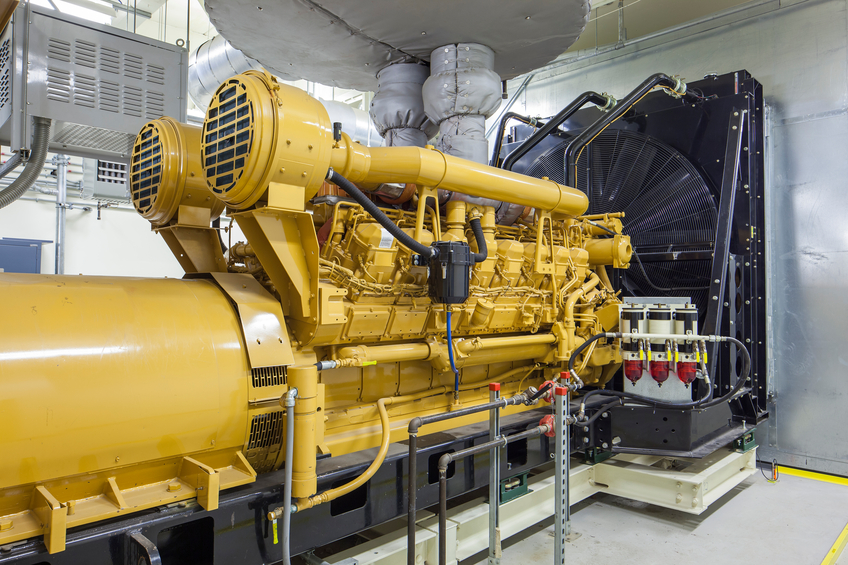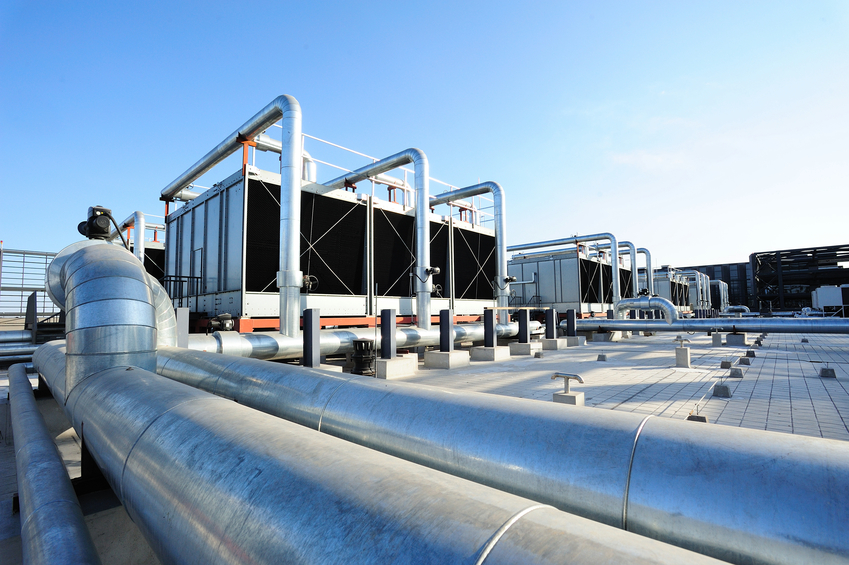Texas Energy Efficiency and Ethics 15 PDH Discount Package 2
Courses in this Package
Advancing Systems and Technologies to Produce Cleaner Fuels (P03-003)
Improving Motor and Drive System Performance (E06-006)
Heating and Cooling System Upgrades (M03-022)
Cooling Tower Key Components and How to Improve Water Efficiency (M01-018)
Ethics in Professional Practice (LE2-007)

This online engineering PDH course provides information on advancements made in systems and technologies related to oil and natural gas development to produce cleaner fuels. It pays special attention to advancements aimed at reducing the environmental impact associated with the production of oil and natural gas. It also discusses the safety conditions for those involved in the development process.
Fossil fuel resources account for 82% of total U.S. primary energy use because they are abundant, have a relatively low cost of production, and have a high energy density—enabling easy transport and storage. The infrastructure built over decades to supply fossil fuels is the world’s largest enterprise with the largest market capitalization. Of fossil fuels, oil and natural gas make up 63% of energy usage. Across the energy economy, the source and mix of fuels used across these sectors is changing, particularly the rapid increase in natural gas production from unconventional resources for electricity generation and the rapid increase in domestic production of shale oil. The United States will, for the foreseeable future, continue to rely heavily upon oil and natural gas to support its economy, national security, and energy security.
This 3 PDH online course is applicable to petroleum, chemical, mechanical and sustainability engineers and other technical personnel who are interested in learning more about the trends in advancing oil and gas development systems and technologies.
This PE continuing education course is intended to provide you with the following specific knowledge and skills:
- Understanding the Oil and Gas industry in the Energy Economy of the United States
- Familiarizing with the latest technological advancements in Oil and Gas
- Learning about the emerging research opportunities and the four themes to address R&D challenges
- Learning the about the Oil and Gas challenges through specific technology assessments
- Understanding the risks associated with the various aspects of oil and natural gas development
- Learning from past oil and natural gas development mistakes and disasters to ensure they are not repeated
Upon successful completion of the quiz, print your Certificate of Completion instantly. (Note: if you are paying by check or money order, you will be able to print it after we receive your payment.) For your convenience, we will also email it to you. Please note that you can log in to your account at any time to access and print your Certificate of Completion.

This online PDH course presents the basics of motor and drive systems and briefly describes important terms, relationships, and system design considerations. It also provides a roadmap for finding opportunities to improve motor performance, as well as exploring the economics of motor systems.
Electric motors, taken together, make up the single largest end use of electricity in the United States. In the U.S. manufacturing sector, electric motors used for machine drives such as pumps, conveyors, compressors, fans, mixers, grinders, and other materials handling or processing equipment account for about 54% of electricity consumption.
To achieve cost-effective operation and maintenance of a motor and drive system, operators must pay attention to the entire system as well as to its individual components. Often, when investigating efficiency opportunities, operators are so focused on the immediate demands of this equipment that they overlook the bigger picture, which includes the ways in which system parameters affect all the equipment.
This 6 PDH online course is intended for electrical and mechanical engineers, contractors, manufacturers, building professionals and others interested in learning more about improving motor and drive system performance.
This PE continuing education course is intended to provide you with the following specific knowledge and skills:
- Detecting the indications of a poor system design
- Learning about the different types of electric motors
- Understanding motor operating characteristics
- Selecting motors and drives for their corresponding applications
- Understanding load duty cycles
- Familiarizing with common motor selection problems
- Understanding the framework for addressing seven efficiency opportunities
- Familiarizing with the steps that could be considered to improve motor performance
- Gaining a basic understanding of the economic considerations of motor systems
Upon successful completion of the quiz, print your Certificate of Completion instantly. (Note: if you are paying by check or money order, you will be able to print it after we receive your payment.) For your convenience, we will also email it to you. Please note that you can log in to your account at any time to access and print your Certificate of Completion.

This online engineering PDH course identifies the opportunities for improving the performance of the heating and cooling system based on the type of system that is in place.
Heating and cooling systems are the largest single consumers of energy in buildings. These systems condition the air within a building so that occupants are comfortable. Heating and cooling systems consist mainly of chillers, boilers, cooling towers, and pumps. There are central heating and cooling systems, and unitary systems that combine heating and cooling. Opportunities exist for improvement to both central and unitary systems.
This 3 PDH online course is applicable to engineers, contractors, designers and other technical professionals who are involved in the retrofit of existing heating and cooling systems.
This PE continuing education course is intended to provide you with the following specific knowledge and skills:
- Understanding the best opportunities available for upgrading central cooling systems including chillers, cooling towers, water side economizers and pumps
- Understanding the best opportunities available for upgrading central heating systems including boilers and furnaces
- Understanding the best opportunities available for unitary systems including packaged or rooftop units, split system packaged units, air source heat pumps and water loop heat pump systems
- Learning about new strategies aimed at saving energy such as geothermal heat pumps, district cooling and heating, radiant heating and cooling, cool storage, high temperature difference distribution, evaporative cooling, and non-electric cooling
In this professional engineering CEU course, you need to review "Heating and Cooling System Upgrades" of the Energy Star Building Manual. (Energy Star is a joint program of the U.S. Environmental Protection Agency and the U.S. Department of Energy).
Upon successful completion of the quiz, print your Certificate of Completion instantly. (Note: if you are paying by check or money order, you will be able to print it after we receive your payment.) For your convenience, we will also email it to you. Please note that you can log in to your account at any time to access and print your Certificate of Completion.

This online engineering PDH course provides a basic understanding of cooling towers, describes their key components and provides recommendations on how to improve the water efficiency.
Cooling towers are an integral component of many refrigeration systems, providing comfort or process cooling across a broad range of applications. They are the point in the system where heat is dissipated to the atmosphere through the evaporative process, and are common in industries such as oil refining, chemical processing, power plants, steel mills, and many different manufacturing processes where process cooling is required.
This 1 PDH online course is intended for mechanical and environmental engineers as well as others interested in learning more about cooling towers and how to improve their water efficiency.
This PE continuing education course is intended to provide you with the following specific knowledge and skills:
- Understanding the basic cooling tower terms
- Learning the different types of cooling towers
- Learning the system calculations
- Understanding the factors that limit cycles of concentration
- Knowing the system concerns
- Familiarizing with the treatment options
Upon successful completion of the quiz, print your Certificate of Completion instantly. (Note: if you are paying by check or money order, you will be able to print it after we receive your payment.) For your convenience, we will also email it to you. Please note that you can log in to your account at any time to access and print your Certificate of Completion.

In this online engineering PDH course, background on the philosophical models that guide ethical behavior is discussed and then applied to specific situations in engineering codes of ethics. This course is based on the American Society of Mechanical Engineers Professional Practice Curriculum, Volume 8, Section: Engineering Ethics.
Many engineering organizations have drafted codes of ethics to which their members are required to commit. Generally, these codes are quite similar and are based on a few fundamental principles which provide guidance to professional engineers in common situations. Nevertheless, there are many difficult or ambiguous situations in which the best ethical solution is difficult to determine.
This 2 PDH online course is intended primarily for engineers seeking to learn ethical principles and how to apply them to their professional practice.
This PE continuing education course is intended to provide you with the following specific knowledge and skills:
-
Determining ethical behavior using several philosophical models
-
Evaluating a practical situation in terms of a professional code of ethics
-
Identifying situations that represent conflicts of interest and formulate a proper response
-
Applying the standards of professional ethics in technical communication
-
Recognizing environmental impacts of engineering work
-
Considering principles of sustainable development in the performance of professional duties
In this professional engineering CEU course, you need to review "Ethics in Professional Practice" published by the American Society of Mechanical Engineers (ASME). (This course document is reproduced by permission of the ASME (www.asme.org). You may also download from or view this course document on the ASME's website by clicking on Ethics in Professional Practice).
Once you complete your course review, you need to take a multiple-choice quiz consisting of fifteen (15) questions to earn 2 PDH credit. The quiz will be based on this ASME publication.
Upon successful completion of the quiz, print your Certificate of Completion instantly. (Note: if you are paying by check or money order, you will be able to print it after we receive your payment.) For your convenience, we will also email it to you. Please note that you can log in to your account at any time to access and print your Certificate of Completion.